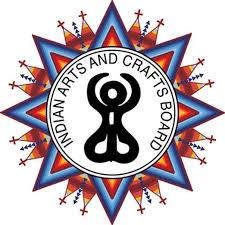
- Details
- By Native News Online Staff
A Las Vegas man appeared in court Tuesday after being indicted for allegedly selling counterfeit goods falsely advertised as authentic Native American-made items, in violation of the Indian Arts and Crafts Act of 1990.
A federal grand jury charged 61-year-old Jose Skywolf Martinez with one count under the Act. U.S. Magistrate Judge Elayna J. Youchah set his jury trial to begin on September 8, 2025.
According to the indictment and statements made in court, from around December 7, 2023, to December 10, 2024, Martinez allegedly offered or displayed items for sale that falsely claimed to be produced by a Native American individual or tribe.
The charges were announced by U.S. Attorney Sigal Chattah for the District of Nevada; Douglas Ault, Assistant Director of Law Enforcement for the U.S. Fish and Wildlife Service; and Meridith Stanton, Director of the Indian Arts and Crafts Board at the U.S. Department of the Interior.
“The Indian Arts and Crafts Board (IACB) administers and enforces the Indian Arts and Crafts Act (IACA), a truth-in-marketing law,” Indian Arts and Crafts Board Director Stanton said. “The IACA is intended to rid the Indian arts and crafts marketplace of fakes and counterfeits to protect the economic livelihoods and cultural heritage of Indian artists, as well as to protect consumers. Authentic Indian art and craftwork is an important tool for passing down cultural traditions and artistic skills from one generation to the next. Counterfeit Indian art sold by Mr. Martinez undercuts Indian economies, culture, and traditions. The indictment of Mr. Martinez should send a strong message to those engaged in the sale of counterfeit Indian art that they will be found and held accountable.”
The Indian Arts and Crafts Act (IACA) makes it illegal to offer, display, or sell any item in a way that falsely implies it was produced by a Native American individual or tribe. The law aims to protect the integrity of Native American art by preventing non-Native products from being misrepresented as “Indian made.” It applies broadly to all traditional and contemporary Native American-style arts and crafts created after 1935 and regulates marketing practices across the United States.
The IACA plays a vital role in supporting Native American artists and their communities by helping preserve cultural authenticity and economic opportunity. Counterfeit goods not only deceive consumers but also harm Native artists by driving down both market value and standards for genuine work.
If convicted, Jose Skywolf Martinez faces a maximum sentence of up to five years in prison, a $250,000 fine, or both. The final sentence will be determined by a federal district court judge, who will consider the U.S. Sentencing Guidelines and other relevant factors.
The case is being investigated by the U.S. Fish and Wildlife Service and is being prosecuted by Assistant U.S. Attorney Skyler Pearson.
An indictment is only an allegation. All defendants are presumed innocent unless and until proven guilty beyond a reasonable doubt in a court of law.
More Stories Like This
NCAI Passes Two Emergency Resolutions on Immigration Enforcement ActivitiesChickasaw Lighthorse Police Officer named Indian Country Law Enforcement Officer of the Year
Indian Gaming Association Rallies Broad Coalition Against Sports Event Contracts It Calls Illegal Threat to Tribal Sovereignty
Navajo Resources and Development Committee Issues Notice on Livestock Inspection Requirements
American Prairie, Tribal Coalition Files Protest Over Rescinded Grazing Rights
Help us defend tribal sovereignty.
At Native News Online, our mission is rooted in telling the stories that strengthen sovereignty and uplift Indigenous voices — not just at year’s end, but every single day.
Because of your generosity last year, we were able to keep our reporters on the ground in tribal communities, at national gatherings and in the halls of Congress — covering the issues that matter most to Indian Country: sovereignty, culture, education, health and economic opportunity.
That support sustained us through a tough year in 2025. Now, as we look to the year ahead, we need your help right now to ensure warrior journalism remains strong — reporting that defends tribal sovereignty, amplifies Native truth, and holds power accountable.
 The stakes couldn't be higher. Your support keeps Native voices heard, Native stories told and Native sovereignty defended.
The stakes couldn't be higher. Your support keeps Native voices heard, Native stories told and Native sovereignty defended.
Stand with Warrior Journalism today.
Levi Rickert (Potawatomi), Editor & Publisher


